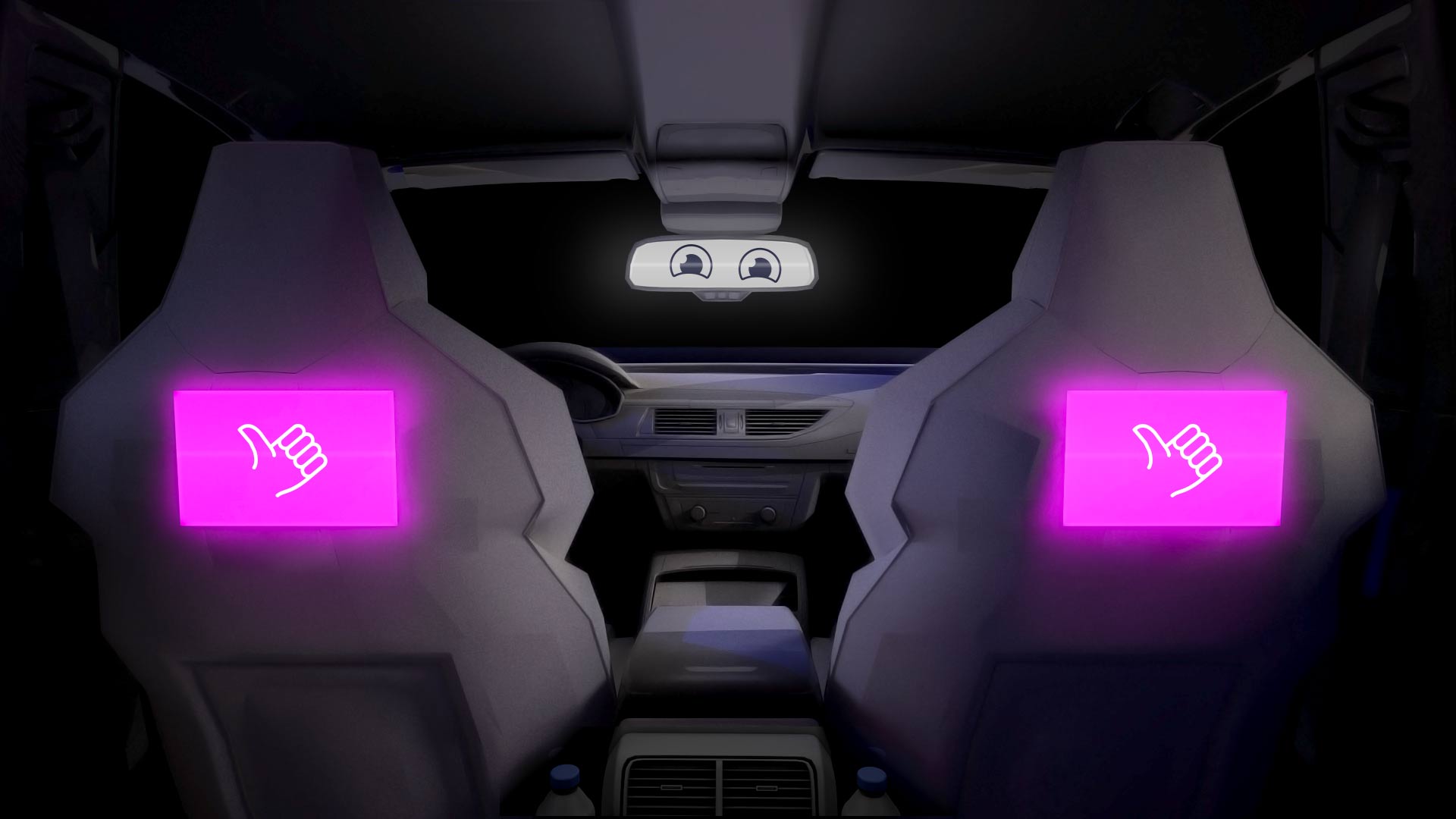Hitch is an interactive narrative (created with twine) that imagines the awkward small talk that will take place between you and your autonomous vehicle service.
At first glance, Google’s (and others) investment in autonomous driving may seem altruistic. In press-releases, promotional videos, and company blog posts, they imagine an autonomous vehicle fleet bringing about a revolution in travel: a world where traffic is a thing of the past, where emissions are cut, where people unable to drive are blessed with the gift of mobility. An efficient network of autonomous vehicles could even replace public transit infrastructure, they claim. And without the need for human drivers (who are not only terribly inefficient, but also easily distractible) the cost of this all would be comparably very very cheap.
Hypothetically, this may all be true. But of course, like all of the services we use today, the trade-off is with our own privacy. Our transportation habits are valuable data, a missing piece of an algorithm to be processed, aggregated, vertically integrated in order to create a fuller profile of you, a consumer of goods and services. Additionally, every moment of idle time is a moment to increase this increasingly complex data dossier. In other words, instead of concentrating on the road, just relax, take a load off, and concentrate on feeding the cloud with more of your data.
Hitch claims that its primary directive is to make you comfortable. You can choose the avatar that you feel most comfortable with. Hitch will adjust the climate to your exact specifications. It will generate calming music based on your biometric data. But, as it soon becomes clear, the directive of comfort runs parallel to a larger one: Collect as much data on you as possible. It’s the unspoken social contract that governs our digital lives. Refusal to comply with hitch’s attempt at small talk results in light scolding and apologies for making you uncomfortable. But if you continue to be difficult, the scolding and apologies transition from requests to demands, then from demands to threats.
How do we make our personhood legible within these big data platforms? Is individual connection possible under mass-surveillance, and is the trade-off worth it? The more you speak with hitch, the more you realize that, even though it is a robot, it may be struggling with these questions as well.




